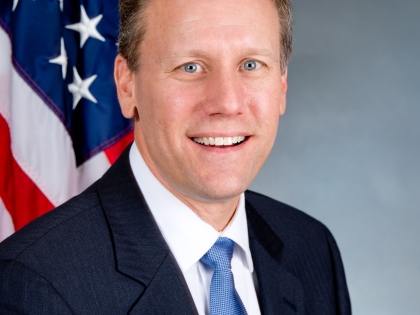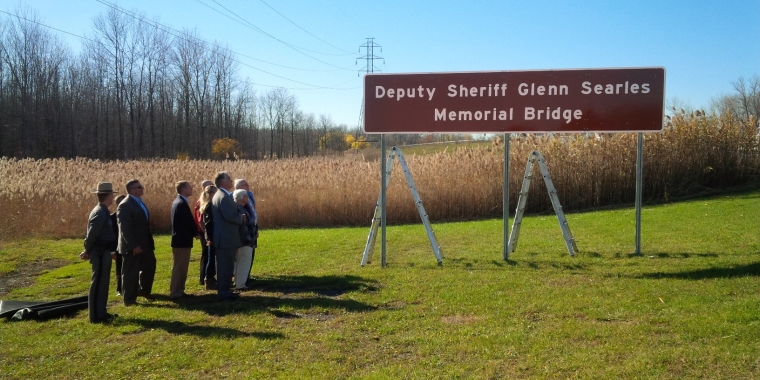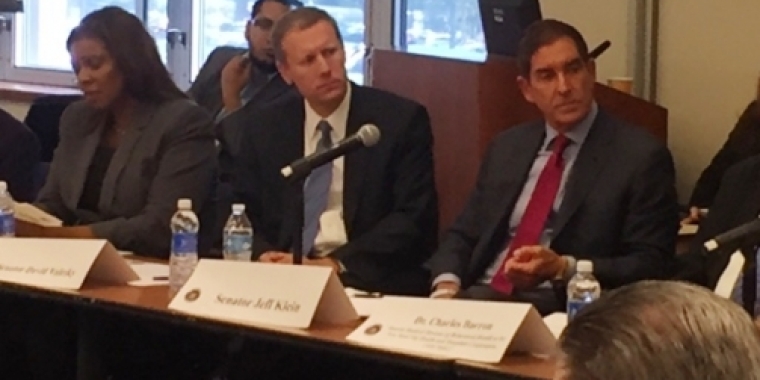
Syracuse Undocumented Rising raises awareness of DREAM Act’s implications
By Brett Samuels, Asst. News Editor
In mid-November, Daisy Becerra marched with around ten other students to State Senator David Valesky’s office to encourage him to support the New York DREAM Act.
The students, several of which are undocumented, walked through the cold and snow, in the hopes that Valesky would support the legislation. The legislation would give students who are undocumented immigrants access to financial aid.
“It was the first snow of the season, our signs were drenched by the time we got there, and we were freezing, absolutely freezing,” said Becerra, a senior magazine journalism major at Syracuse University. “But for me, it was worth every second.”
The N.Y. DREAM Act would allow undocumented students who meet in-state tuition requirements to access state financial aid and scholarships, according to the N.Y. DREAM Act’s website. Students who have graduated high school but are undocumented are ineligible to receive federal tuition assistance, according to the website. If the DREAM Act is passed, all of that could change.
An undocumented student is defined as a foreign national who either entered the United States without inspection or with fraudulent documents, or someone who entered legally as a nonimmigrant but then stayed in the U.S. without authorization.
One group at SU, Syracuse Undocumented Rising, is attempting to promote awareness about the obstacles undocumented students face, and to emphasize their importance.
The organization’s webpage said one of the group’s goals is to give undocumented students a space to express their needs.
“Many undocumented students lose motivation to pursue higher education because of the financial hurdles,” Becerra said.
She added that New York has a reputation for welcoming immigrants, but passing the DREAM Act would truly show it cares about providing for those citizens.
The legislation has already been passed by the N.Y. State Assembly, but has had trouble in the state Senate. Senate co-leader Jeffrey Klein (D-Bronx) recently spoke out in support of the bill.
Although the bill does have Klein’s support, John Hanley, a post-doctoral fellow in political science at SU, said in an email that he doesn’t believe there are enough votes in the state Senate to get the bill to the governor’s desk.
He said that Gov. Cuomo hasn’t given the legislation his full support, adding that it’s important for Cuomo to maintain his current approval numbers in upstate N.Y.
Hanley said one reason politicians might be hesitant to support the DREAM Act is because of the larger issues it’s tied to.
“There’s a general risk in linking education to a polarized issue like immigration,” Hanley said.
He added that there are even fewer benefits for politicians upstate to support the DREAM Act because there are far fewer undocumented students who live in that area.
“I think if you get a national resolution of the immigration situation, it’ll be much easier to then take action at the state level,” Hanley said. “Politicians want to be able to explain their activity, and if they can say that they’re just helping young people who are already on the path to citizenship, that’s much better.”
For students like Becerra, the legislation passing would afford them a luxury their family members may not have had.
Becerra said her sister thought she wouldn’t be able to attend college because of the high cost. Eventually, Becerra said her sister was able to go to school and get a job.
“When I was marching in the freezing snow, I sent her a picture,” Becerra said. “She saved it, and it makes me incredibly happy that I’ve made her proud.”
Until progress is made with the DREAM Act in N.Y. state, Becerra said Syracuse Undocumented Rising will continue to work as hard as it has been the past couple of months to encourage change.
Said Becerra: “The fact that the organization is still working hard for change even though they’ve had to face backlash is a success.”



